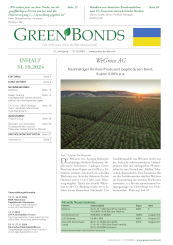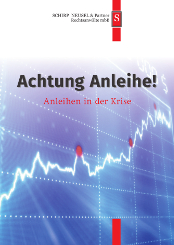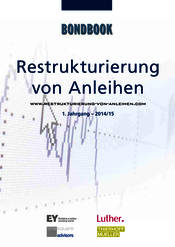For much of 2012 the eurozone stood on the edge of an abyss, with real fears of a break-up caused by the strains of the debilitating debt crisis. But it has stepped back from the brink – at least for now.
We have the beginnings of a roadmap for future integration of the economic and monetary union, most significantly for the banking sector. The coalition government elected in Greece back in June, at the point of greatest fears of a possible “Grexit”, has gradually looked more stable, particularly since the eurozone agreed to extend the loan programme and provide the means for a debt buy-back. Most importantly we have had the ECB’s commitment to do “whatever it takes” to preserve the euro: a commitment that is seemingly so credible that peripheral spreads are at their tightest levels since March 2012 even though the ECB has yet to have to buy a single euro of government bonds under the Outright Monetary Transactions (OMT) programme. As a result, the end of the year finds sentiment surrounding the eurozone.
To build on these achievements in 2013, there still needs to be progress in a number of areas. The plans for a single banking supervisor need to be kept on track so that it is operational by early 2014. The other essential elements of an effective banking union, including the single resolution mechanism, will clearly take longer but should at least find their way into a detailed proposal during 2013. The other key building blocks – covering economic, fiscal and political matters – need to move well beyond the discussion stage as a matter of urgency, with the next set of decisions scheduled to be taken at the June European Council meeting. Big compromises will have to be made on all sides before eurozone governments and institutions reach agreement. We expect there to be periods in 2013 and 2014 when markets are likely to question whether the required integration from all member states is truly feasible.
The short and the medium term challenges are still great. The promise of ECB action has not lessened the need for austerity and structural reform, nor improved the lot of the increasing number of unemployed. It is probably inevitable that a further increase in strikes and demonstrations across the periphery will accompany the rise in joblessness. Nor has the stability in markets made companies sufficiently confident about the medium-term outlook to resume investing. It may have encouraged some companies to tap the market for debt while they can but the deleveraging process in both the private and public sector generally continues. Fiscal multiplier effects are still uncertain but clearly larger than previously envisaged.
There are some positive signs: labour markets are becoming less rigid and more competitive and there are already indications that the recent improvements are being reflected in a more resilient export performance. The growth outlook, nonetheless, remains very weak. Deleveraging, austerity and rising unemployment mean growth will depend on external demand, particularly in the periphery. And while an upturn in the world trade cycle should provide some relief in 2013 it is highly unlikely to be strong enough for revenue growth to come to the rescue of the public finances. Official medium-term GDP growth projections still look too optimistic, particularly in the periphery but also in France, although our concerns about France relate more to 2014 than to 2013.
Low growth, combined with the low inflation that arises from the need to regain competitiveness, implies government debt projections in the periphery in particular will continue to be revised up. We still think that failure to meet fiscal targets or stick to the spirit of the reforms will trigger market pressure and remain of the view that Spain will eventually ask for a precautionary ESM programme (a prerequisite for ECB bond buying). Doubts about whether the debt will be repaid could resurface. In Greece those doubts have never gone away. Events in Greece have stabilised but there is no sign of an end to the economic depression and some further reduction in the debt stock will have to be granted by official creditors sooner or later.
But, partly because of the German elections in September, when an Angela Merkel-led Grand Coalition is highly likely to be elected, 2013 is set to be a year when the next stages of eurozone integration are agreed on and drafting of legislation begins, rather than a year in which much becomes operational or debt is written off. She will not be rushed into making any quick decisions on future fiscal integration and eventual common bond issuance, so any near-term solidarity will have to come from the ECB. While that will continue to stabilise the situation, it will not be without cost. It is already clear that there is much opposition in Germany to the planned OMT policy and with property prices on an upward trend it will be hard to curb German fears of an eventual pick-up in inflation, even though near-term inflation is set to remain very low.
All these show that Europe’s new found stability remains precarious. And tackling some of the outstanding issues could take many more years, most likely a decade or so. But whatever happens in the coming year, the eurozone, having backed away from the abyss in 2012, must do everything it can to stay clear of it in 2013.
----------------------------------------
Soeben erschienen: BOND YEARBOOK 2012/13 -
Das Nachschlagewerk für Anleiheinvestoren und -Emittenten
Renommierte Autoren und Interviewpartner nehmen Stellung zu den Themenfeldern High Yield-Anleihen, Mittelstandsanleihen, Covered Bonds, Investmentstrategien sowie Tax & Legal. Das jährliche Nachschlagewerk erscheint bereits im 4. Jahrgang und hat einen Umfang von 108 Seiten. Die Ausgabe kann zum Preis von 29 Euro beim Verlag bezogen werden:
http://www.fixed-income.org/fileadmin/2012-11/Flyer_Bestellformular_BondBook_12_13.pdf
----------------------------------------













